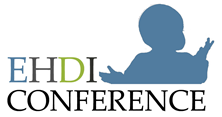| Presenter Information: |
| Presenter 1: |
Name: Elizabeth Seeliger
Affiliation: Department of Health Services
Elizabeth Seeliger has worked as a clinical audiologist in a variety of settings, guiding children and families through the EHDI process. She is now the Wisconsin Sound Beginnings (WSB) Program Director. WSB is the name given to the statewide Early Hearing Detection and Intervention (EHDI) program in the Division of Public Health. As the Director of the Wisconsin EHDI Program Elizabeth has played a leadership role in the development of a data, tracking and referral system, developed educational resources for hospitals, audiologists, and families, facilitated the development of a comprehensive guide for providers, and an interactive notebook for parents. Elizabeth has also spearheaded the initiative to enable WI homebirth midwives to provide UNHS. Elizabeth sits on the board of directors for both the WI and National Chapters of Families for Hands & Voices, and the Directors of Speech and Hearing Programs in the State Health and Welfare Agencies (DSHPSHWA).
|
|

